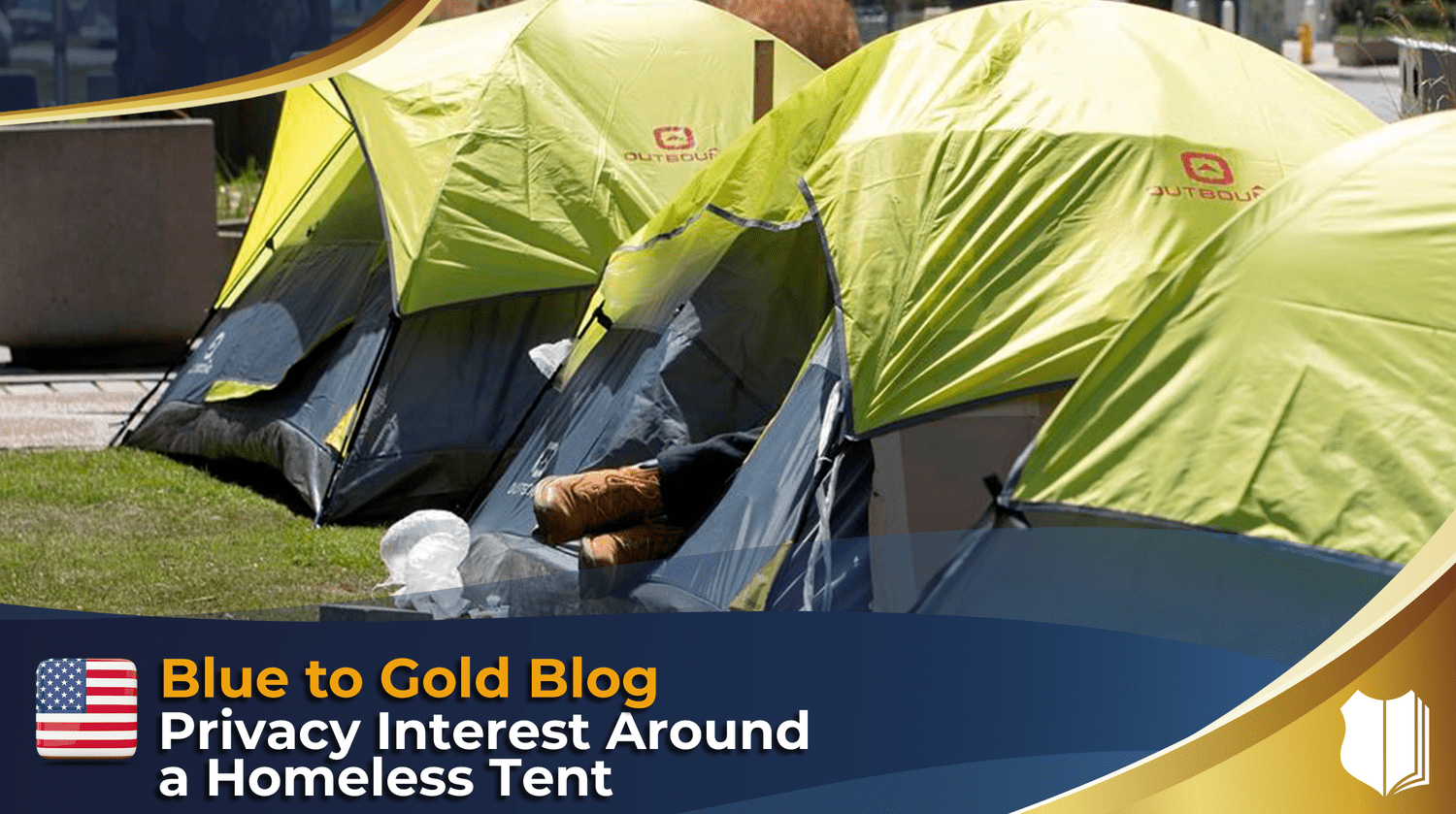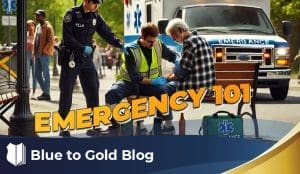“Does a homeless person have a reasonable expectation of privacy in areas around an illegal encampment?”
This comes from an officer in Las Vegas Metro PD.
An arrest was made on a homeless lady who had more than 150 grams of meth. She was trespassing by a wash, and setting up a tent and so forth near some train tracks. The officers arrived and detained all the people present for trespassing past a fenced area.
Now, this suspect took the longest to respond to the officers. And she appeared to be hiding something and was acting abnormally nervous and scrambling items and so forth. The lady eventually came up and said she was looking for shoes.
When an officer went by to see the area where she was coming from, the officer saw a pink purse upside down and drug paraphernalia around it. Then the officer also saw a blue bag, a plastic sandwich bag sticking out. It had a residue on its end that was consistent with methamphetamine. He pulled out the bag and that’s where he found about 150 grams of meth. These are the facts, I think as I read them, but they can be a little different. But it’s probably not going to change the answer anyway.
So the question is this, did the suspects have a reasonable expectation of privacy in this area around her “property,” where she has her bicycle, some copper wire, a trailer, miscellaneous plastic items, and so forth, even though she was trespassing?
The answer is “No.”
A homeless person who is knowingly trespassing, where it’s obvious that they’re trespassing, there are signs, there are fences, maybe there’s a hole in the fence you have to snake through; it’s very hard for that person to establish a reasonable expectation of privacy in this area where they’re illegally camping. Think of it this way, would a reasonable person understand that they shouldn’t have an expectation of privacy under these conditions? And the answer is “yes.’ They know that they can’t just set up like this and expect that they just establish some kind of curtilage around their illegal camp. Therefore, when the officer goes up to that area and sees illegal contraband, it’s seen in plain view, or even open view, if you want to call it that, the cop is seeing it lawfully. Therefore, if the evidence is immediately apparent as contraband, the officer can then seize it under plain or open view. I hope that makes sense.
Now, I do want to caution officers, that sometimes in these weird circumstances, a homeless person may be able to establish an expectation of privacy in an actual tent, especially in areas where illegal camping is known to occur. Think of Skid Row. Think of under bridges. I just want cops to know that if you’re going to enter those tents, you have to be kind of careful here.
The Ninth Circuit wants to see notice and opportunity for them to move and grab their stuff. They don’t want to see cops just not respecting any kind of expectation of privacy on these “homes,” even though they may be technically or let’s just say legally, trespassing.
In areas that are kind of known for encampments, the last thing you want to do is start bulldozing these people’s property away and thinking that it has no constitutional implications. It could. But when it comes to washes, and certainly private property, it’s a little easier to justify that they had no expectation of privacy in the first place. Because that’s just not an area that’s acceptable for illegal encampments, especially in washes, which can flood, and cops are pretty proactive about keeping those areas clear and so forth.
But, just to remind us, we’re not going into the tent. I’m just trying to give you a little pro tip that going into tents is a little more difficult to justify in the Ninth Circuit versus looking at areas around an encampment. I hope that makes sense. In the example above, based on the facts that I see, the officer is good. I think it’s a great case. Good job. 150 grams of meth is a great case. Keep the community safe.
I hope this question and the answer has helped you get it right every single time. Keep up the good job and stay safe!











